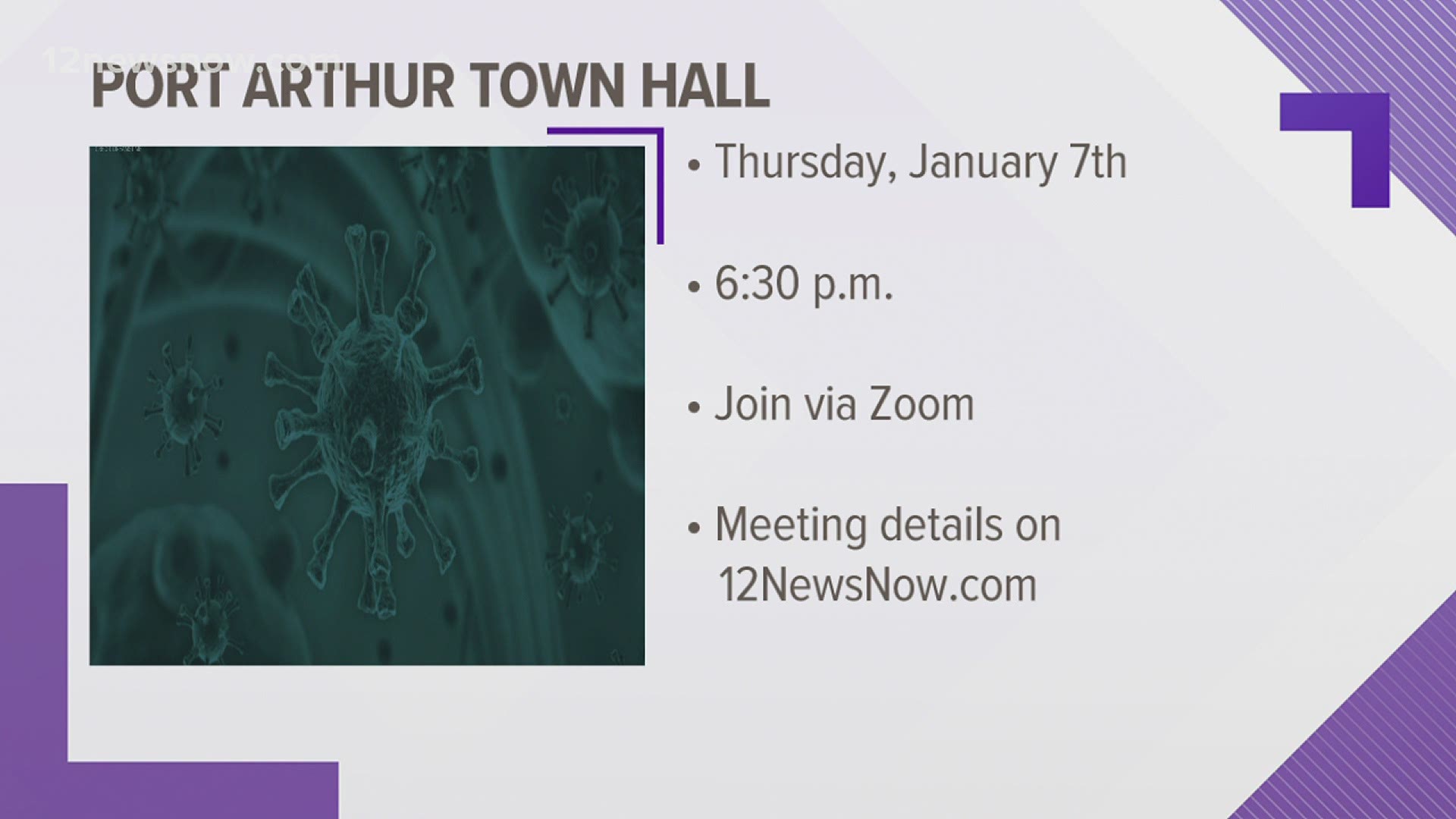PORT ARTHUR, Texas — Health officials in Port Arthur are hoping to help give people a better understanding of the COVID-19 vaccine as they wait for the health department to receive shipments of the shots.
The Port Arthur Health Department is planning a 'virtual town hall session' to allow folks to ask questions about the vaccine.
"We fully understand why many may be concerned and a bit hesitant, so we are planning a virtual town hall session for you to ask questions to public health officials," the city said in an online news release.
The session is planned for Thursday, January 7 at 6:30 p.m.
MORE | How to join meeting, details
From a City of Port Arthur news release:
While the Port Arthur Health Department is waiting for the arrival of the COVID vaccines, we want to encourage you to seek the facts about the vaccines. We fully understand why many may be concerned and a bit hesitant, so we are planning a virtual town hall session for you to ask questions to public health officials. The session is planned for Thursday, January 7, 2021 at 6:30 p.m. We encourage all to join the health department staff and our Health Authority, Dr. Oscar Enriquez, to hear the facts about the COVID vaccines.
Coronavirus symptoms
The symptoms of coronavirus can be similar to the flu or a bad cold. Symptoms include a fever, cough and shortness of breath, according to the Centers for Disease Control.
Most healthy people will have mild symptoms. A study of more than 72,000 patients by the Centers for Disease Control in China showed 80 percent of the cases there were mild.
But infections can cause pneumonia, severe acute respiratory syndrome, kidney failure and even death, according to the World Health Organization. Older people with underlying health conditions are most at risk.
The CDC believes symptoms may appear anywhere from two to 14 days after being exposed.
RELATED: VERIFY: No, members of Congress who are self-quarantined for coronavirus cannot vote remotely
Human coronaviruses are usually spread through...
- The air by coughing or sneezing
- Close personal contact, such as touching or shaking hands
- Touching an object or surface with the virus on it, then touching your mouth, nose or eyes before washing your hands.
Help stop the spread of coronavirus
- Stay home when you are sick.
- Eat and sleep separately from your family members
- Use different utensils and dishes
- Cover your cough or sneeze with your arm, not your hand.
- If you use a tissue, throw it in the trash
Lower your risk
- Wash your hands often with soap and water for at least 20 seconds. If soap and water are not available, use an alcohol-based hand sanitizer.
- Avoid touching your eyes, nose, and mouth with unwashed hands.
- Avoid close contact with people who are sick.
- Clean and disinfect frequently touched objects and surfaces.
- If you are 60 or over and have an underlying health condition such as cardiovascular disease, diabetes or respiratory illnesses like asthma or COPD, the World Health Organization advises you to try to avoid crowds or places where you might interact with people who are sick.

